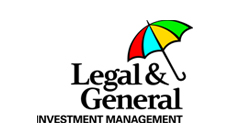
How best to manage talent remains a hot issue for businesses as many seek to refine and reshape operating models. It’s why good HRDs continue to grow in stature, given they are uniquely placed to understand the skills and resources which span an organisation, where areas can be strengthened, what has to change and how realistic the board's strategic plans might be.
Matt Stripe, Group HR Director for the UK & Ireland division of food manufacturer Nestlé, says: “HR Directors should be the architect of the organisation, responsible for taking the business strategy and delivering the blueprint… in terms of how it’s going to achieve those aspirations and the types of people and culture that will be needed.”
It’s a case of knowing which priorities and processes to focus on and what level of investment to make. Natasha Dillon, Associate Director at management consultancy Hay Group, comments: “I worked for BP for 12 years before moving into consulting and one of the biggest issues for the oil and gas industry is around talent management, with up to 60 per cent of the operational workforce retiring in the next five to ten years. That means getting your talent management in line with your business strategy is absolutely critical.”
The role can and does extend further. At air traffic services provider NATS, HRD Gerry Skelton was confronted with the problem of a £1.3 billion defined benefit pension scheme which posed significant issues for the business. He negotiated a deal with the trade union, due to start next year, which will reduce the deficit by £380 million and cut the annual pension bill by £28 million a year.
“Both sides recognised the challenge and that we needed to do something,” says Gerry. “It was very clear an outcome had to be achieved and very quickly. We reached a conclusion that allowed us to have a contribution level with future contribution costs that were both affordable and sustainable.”
Cometh the hour, Cometh the HRD
It is, however, clearly the HRD’s insights around people, performance, succession, engagement and culture that are increasingly of value to other board-level directors, particularly as businesses restructure, expand internationally, conduct M&A and continue to find ways to ‘drive efficiencies’.
Samantha Barber, Non-executive Director at electricity company Iberdrola, comments: “One of the things for me, being on the board of a very big global organisation operating in lots of different countries, is that the perspective coming through from HR is quite often about the underlying cultures within the business. The insights from things like your health and safety record, training, development and talent management begin to build up a picture of the culture across the entire business.”
According to Stephen Catling, Chief Executive of food manufacturer ABF Ingredients, it’s been extremely important to work closely with the HRD because they are vital for the development of strategy. “Getting the people agenda to completely fit your business goals – there’s no other way for me. I don’t see HR directors as systems and procedures people, I see them as true business partners.”
This is exactly how it should be, although of course it takes an ‘enlightened’ executive team to see it that way. Serge Colin, Group HR Director at construction supplier Lafarge Tarmac, observes that “for HRDs to gain influence in the boardroom, it means having to think and act as a business leader first, prior to them being an expert in the HR field".
Again, this comes back to the special place an HRD has within an organisation. Ian Stuart, Chairman of manufacturing concern Aspen Pumps, comments: “It’s about being the CEO’s ear to the ground and I see it as the HRD’s role as being able to tell the CEO: ‘You do realise what’s going on here, don’t you?’ The CEO has to trust their HRD to come and tell them the things that nobody else will.”
For Ella Bennett, HR Director for the UK and Ireland division of global IT systems and services provider Fujitsu, the ideal relationship with the CEO is one where the HRD is seen as “part sparring partner, part confidante”, pointing out that, “the HRD has to be up for this and competent to play both parts well, and deliver on strategy”.
Gareth Jones, Group HR Director at M&G Investments, says: “Strategic decisions and people decisions are inextricably linked. HR’s role is to foster and sustain the human capital base of the organisation, enabling it to take on and adapt to future challenges, and to manage the people risks associated with them.
“For example, the HRD is well placed to offer a long term perspective on the leadership and talent pipeline, and to ensure there is the optimal supply of the right kind of people and skills through the business.”
There is another side to all of this. Those in HR who still believe processes and procedures really are what the role is all about could very easily find themselves ostracised, much like those financial directors who only wanted to sit around and work on spreadsheets all day. The role is now bigger and a good HRD will take on a whole range of strategic responsibilities to meet the needs and expectations of the board.
I hope to see you soon.
Matthew
https://twitter.com/criticaleyeuk


























 (002).png)